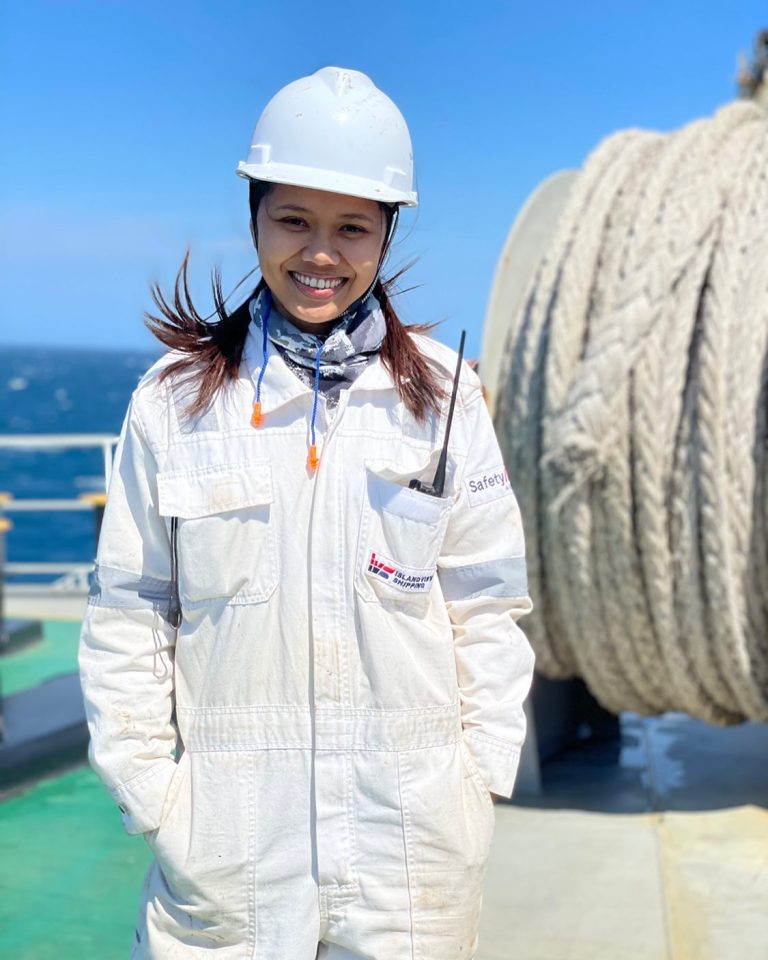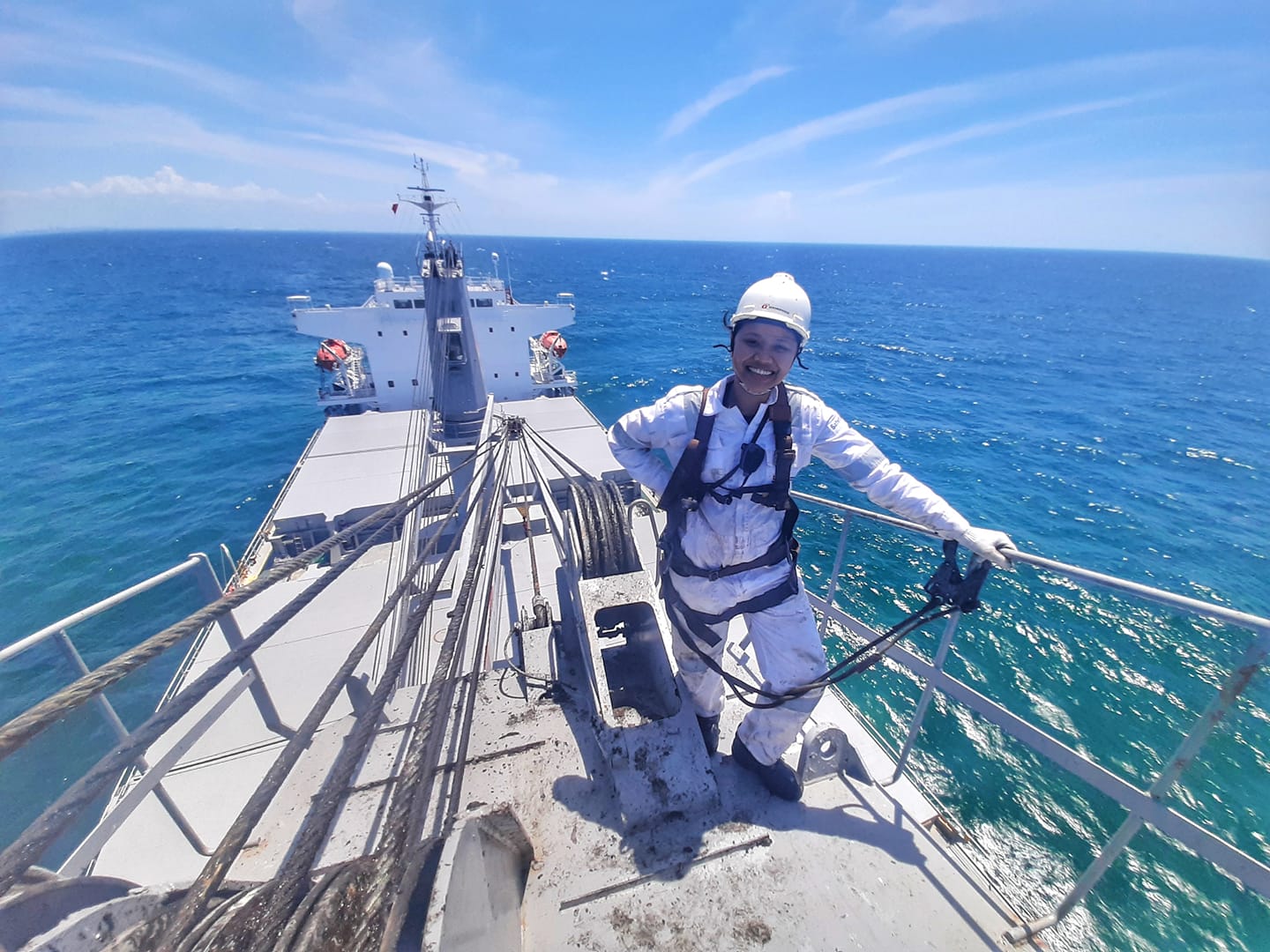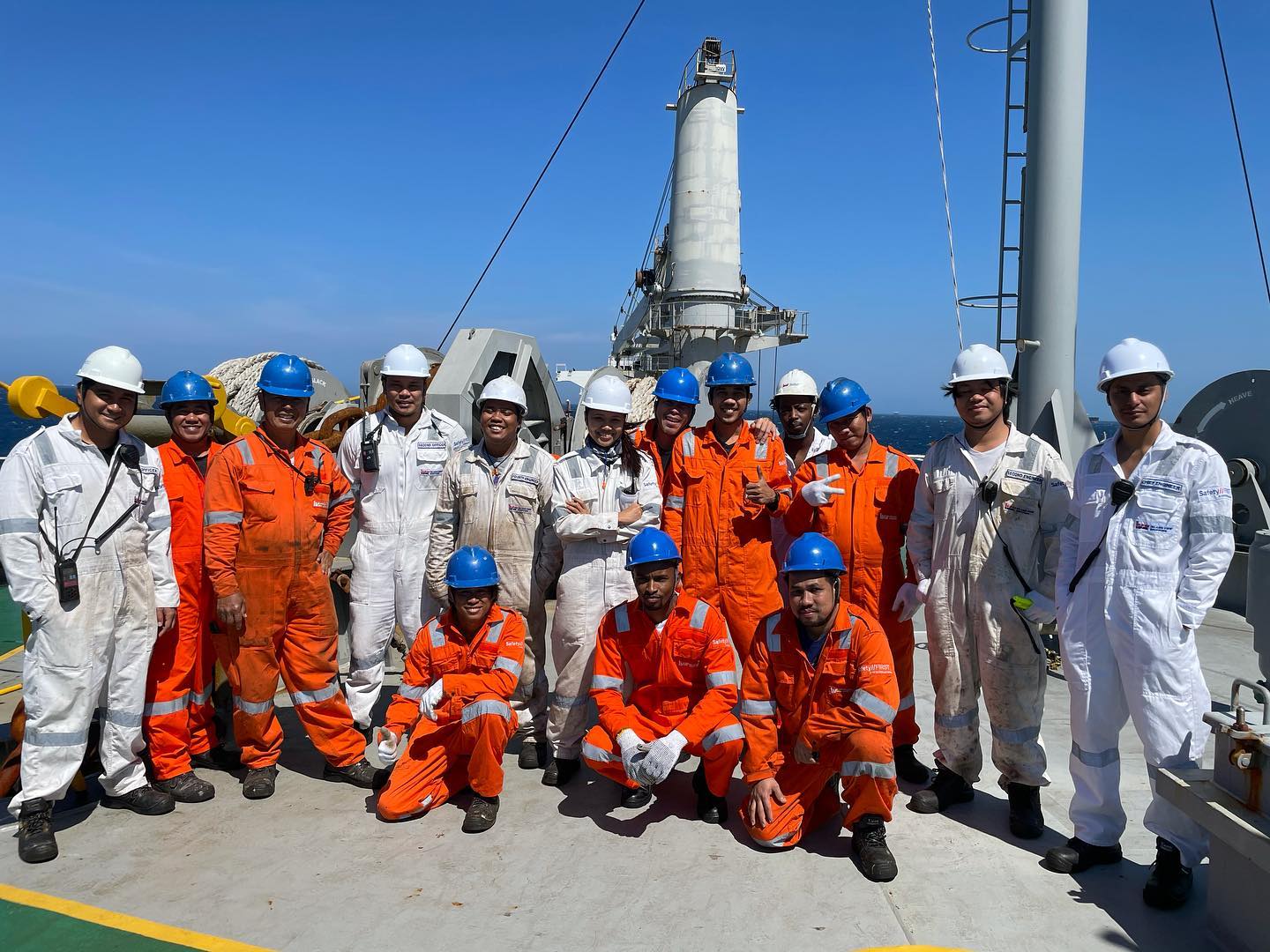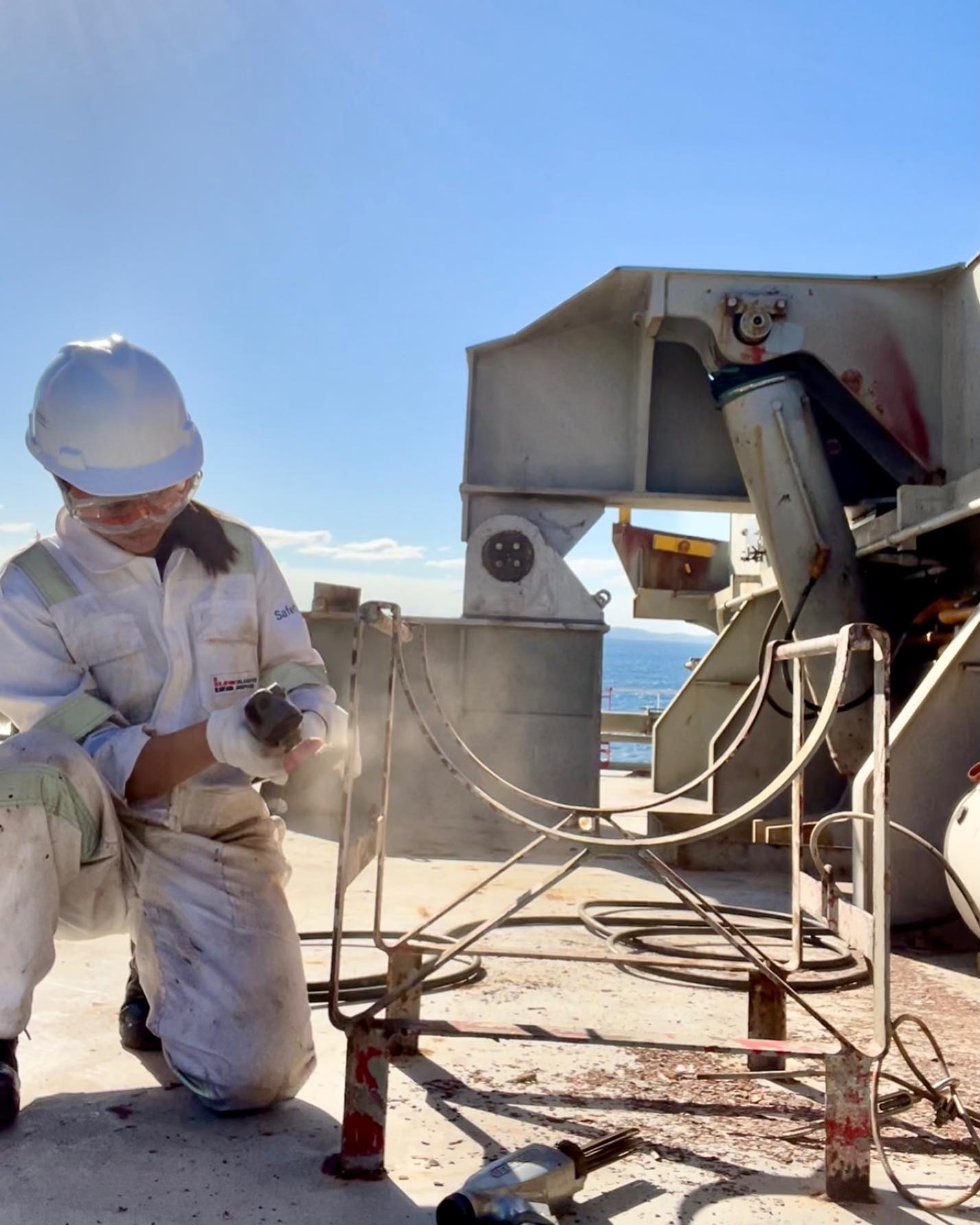
Seafaring is tough. Not for the faint-hearted. And, no longer “for men only.”
According to BIMCO/ICS 2021 Seafarer Workforce Report, women now represent 1.2% of the world’s seafarers. A very deficient indication, you might say, in this twenty-first century libertarianism when women have been showing their excellence in every field of endeavor.
Twenty, or thirty years ago, young women would opt for mainstream careers such as business administration, teaching, medicine, and so on. Schools were not very keen on facilitating discourse as to opportunities maritime career has to offer. And so, the male-dominated field of seagoing. However today, women have fought against the tide. Filipino women not left behind.
Angela Kiamco Manaog is on her 4th year now as a 3rd Officer on a cargo ship. As of this writing, the lady from Buhi, Camarines Sur is wandering somewhere in their current port, Brazil. My exchange with her is due to my curiosity (yours as well I’m sure) as to the personal narrative of a “she-farer” in a line conventionally associated with men and, to give us a picture of the Pinay spirit on the far reaches of the ocean:

Describe what you do.
As the 3rd Officer onboard the ship, my job is to Assist the Chief officer with the maintenance of safety equipment such as lifesaving and firefighting equipment. I am also a part of the Bridge team; therefore, I am responsible for the safe navigation of the ship during my watch, making sure the ship is following its planned voyage and all navigational equipment are in good order.
At port, I am in charge of the Cargo operations. That is, to check that the cargo is being loaded or discharged properly. In case of emergency, I am to report directly to the Master, wherein I am responsible with the distress communication and record keeping. Generally, it is every deck officer’s job to ensure that safety culture onboard is being implemented.
What motivated you to work on ships?
What motivated me to work on a ship is the dream to travel the world for free so to speak. Well, if you’re to ask every Maritime student, that answer will always be on the list.
We can’t also deny the fact that this profession gives high salary where we could use to pay for the bills and to save for the future. However, as I grew older, there is more to that reason. The fact that this industry is the one moving the world motivates me do more and excel in my craft. From the clothes that we wear, the food we eat, to the very little thing that we have at home. That is vital in our daily lives, brought to us by ships. That alone is fulfilling.
How’s your male-dominated work environment? Any issues?
It has been a thinking that working on a ship is a “man’s job.” There are still a lot of institution which do not accept women in the industry. Working on ships is indeed a tough job. But who said women can’t be tough? We are living in a new millennium. Gone are the days where women are only expected to be at home, taking care of kids, sewing or doing the house chores.
Within my service onboard ships, I’ve encountered various situations where I was discriminated and belittled just because “I’m a woman”. In spite of that, it didn’t stop me from doing my job. I believe crying won’t pay the bills. Being onboard made me realize how strong minded I am and how capable I am. I believe I don’t have to be a man to be effective in my tasks. Woman or man, we’re all seafarers. As long as you serve your purpose onboard, that is proof enough that you are able.

Is gender a problem when it comes to applying for work like, your work?
Yes. Sadly, opportunity is not equal for men and women in shipping industry. A fresh graduate, without a scholarship or a program from a shipping company will find it hard to apply for a position on an international seagoing vessel. Sometimes companies only accept candidates from a particular university or academy; she must be introduced by an ex-crew of that company. Sometimes, they don’t accept women applicants at all.
Tell us one gender-related story on your port of docks.
On my last ship, we went to Mina Saqr, UAE where we loaded limestone to be discharged at Madagascar. Due to the global pandemic, some ports do not allow ship’s crew to go ashore (which we normally do prior to the pandemic) to stroll around the city, buy souvenirs, and experience the local culture of that country. Luckily, the port authority of Mina Saqr allowed the ship’s crew to go ashore but only in Duty Free which is still within the port grounds. This was the first time the crew could go ashore ever since COVID-19 started on March 2020. This was the first time that crew could go ashore.
However, they did not allow women seafarers to go ashore. Since it is a Muslim country, privileges for women are limited. And that includes women seafarers visiting their country.

Do you agree this is the era of empowered women? Why or why not?
I don’t think there should be a certain era for empowered women. Women has always been tough even in the old days. In the Philippines, we had women heroes who fought side by side with men in their own unique way. Hidilyn Diaz is a living proof. Women has been underrated. When in fact they can do more, people expect them to do less. Nevertheless, women should not be dictated when to be proud of, to lead, or to be empowered.
(Photos courtesy of Ms. Angela Manaog)